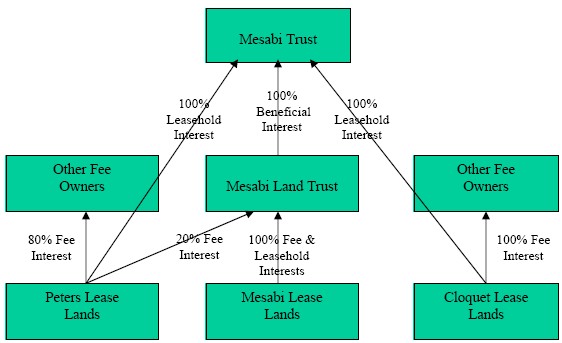October 2022, January 2023 and April 2023, and Cliffs incurred fixed costs during the idle period. When Cliffs restarts idled facilities, it incurs certain costs to replenish inventories, prepare the previously idled facilities for operation, perform the required repair and maintenance activities, and prepare employees to return to work safely and resume production responsibilities. The amount of any such costs can be material, depending on a variety of factors, such as the period of idle time, necessary repairs and available employees, and is difficult to project.
Cliffs also disclosed that in its iron ore operations, disruption of the rail, trucking, lake or other waterway transportation services due to weather-related problems, climate change, strikes, lock-outs, driver shortages and other disruptions in the trucking industry, train crew shortages or other rail network constraints, infectious disease outbreaks or other events and lack of alternative transportation sources could impair Cliffs’ ability to move products internally around its facilities and to supply products to its customers at competitive rates or in a timely manner, and thus, could adversely affect its operations, revenues, margins and profitability.
These events could have a material adverse effect on Cliffs and potentially Northshore, which in turn, could have a material adverse effect on royalties paid to the Trust in the future.
Certain risk factors affecting Cliffs’ North American iron ore business generally, and Northshore operations in particular, could have a material adverse effect on the royalties payable to the Trust.
Because substantially all of the Trust’s revenue is derived from iron ore products shipped by Northshore from Silver Bay, Northshore’s iron ore pellet processing and shipping activities directly impact the Trust’s revenues in each quarter and each year. According to Cliffs’ Annual Report, a number of risk factors affect Cliffs’ operations and could impact Northshore’s production and shipment volume. Cliffs’ Annual Report identified the following seven categories of risk to which Cliffs is subject: (i) economic and market, (ii) regulatory, (iii) financial, (iv) operational, (v) sustainability and development, and (vi) human capital. These risk factors include, among others, the volatility of commodity prices, concentration of business in the automotive market, global steelmaking overcapacity, severe financial hardship or bankruptcy of major customers or key vendors, U.S. government trade policies, extensive governmental regulations relating to the environment and human health and the costs and risks related thereto, use of hazardous materials, inability to obtain, maintain or renew operational permits and licenses, financial risks associated with existing and future indebtedness, dependence on certain raw materials and energy sources, the cost or time to implement strategic capital projects, natural or human-caused disasters, weather conditions, disruptions or failures of its IT systems, costs associated with the idling or closures of an operating facility or mine, lack of appropriate insurance coverage, pressures to reduce carbon footprint, risks associated with maintaining social license, assumptions regarding recoverable mineral reserves, defects in title to any leasehold interests, dependence on senior management team and key employees, labor relations, pension costs and labor shortages. Specifically, if any portion of Northshore’s pelletizing lines becomes idle for any reason, production, shipments and, consequently, the royalties payable to the Trust could be materially adversely affected.
Furthermore, other events such as terrorist acts, conflicts, wars and geopolitical uncertainties, whether or not occurring in or involving, directly or indirectly, the United States, may cause serious harm to Cliffs’ and/or Northshore’s business, operations and revenue. The potential for the occurrence of any of these types of events has created global and domestic economic and political uncertainties. As disclosed by Cliffs, if any of these types of events were to occur, the results would be unpredictable, but may include decreases in demand for iron ore, difficulties related to shipping of iron ore products to Cliffs’ customers, and delays and inefficiencies in Cliffs’ supply chain. The Trust is uninsured, and cannot obtain insurance, for losses and interruptions caused by any of these types of events.



